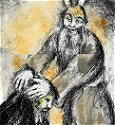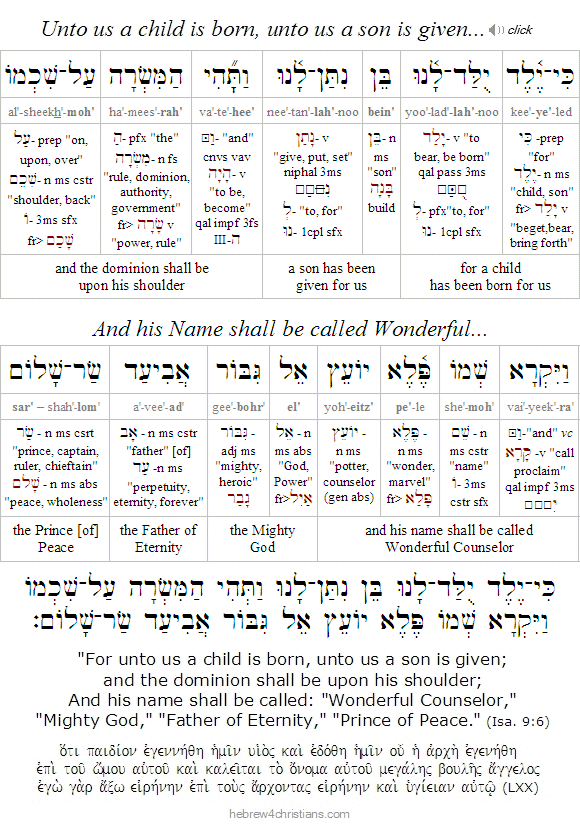|
|
|||||||||||||||||||||
 |
|||||||||||||||||||||
 |
|||||||||||||||||||||
|
|
||||||||||||||||||||||||||||
|
In the Torah summary study of Pinchas, I noted that the broken Vav that appears in Numbers 25:12 is a textual oddity that alludes to the brokenness of the Messiah for our ultimate deliverance. Since the Hebrew letter Vav (ו) traditionally represents the number of Man (i.e., 6), the broken Vav represents a man that is broken. This verse then alludes to a man has been broken for the sake of a covenant of peace that brought atonement to Israel - a clear picture of Yeshua the Mashiach and His ultimate deliverance for us. Note further that the broken word shalom could also be read as שְׁלִים, meaning "complete," indicating that the covenant is one of completion, finality, and perfection. He has delivered us from the domain of darkness and transferred us to the kingdom of his beloved Son, in whom we have redemption, the forgiveness of sins... And, having made peace through the blood of his cross, he reconciled all things to himself... (Col. 1:13-14,20) Yeshua is the true Peacemaker who is called "the Prince of Peace" (שַׂר־שָׁלוֹם, Isa. 9:6). He is the bechor (firstborn, πρωτότοκος) of all creation; the radiance (zohar) of God's glory, and the exact representation ("stamp," "imprint" or "die") of his God's essence and Person (χαρακτὴρ τῆς ὑποστάσεως θεοῦ - "the character of God's substance" (Heb. 1:3)). All things were created by him and for him, and in him all things "stick together" (Col. 1:16-17). Indeed, in "all things" Yeshua has the preeminence. To all those who submit by faith to the sacrifice of God's Son for their sins, the LORD offers a new covenant of peace, an Eternal Healing of the rift between God and man.
|
|
Hebrew for Christians |
|||||
|
|||||


